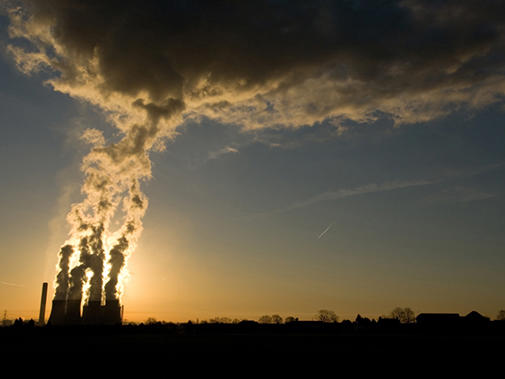The climate emergency is a health emergency
As doctors and medical students on the ground, many of our members are seeing the impact of climate change on our patients. The range of conditions linked to air pollution is extensive – increased risk of respiratory and cardiovascular disease, lung cancer, diabetes, neurological disorders, adverse pregnancy outcomes, depression and anxiety. From acute presentation in our emergency departments to unexpected deterioration in chronic diseases seen in outpatients, the effects are absolutely clear. Climate change is a health crisis.
I also write this following a year of unprecedented global weather events associated with climate change, including extreme heat, which we saw here in the UK. This has significant health implications, including dehydration, exacerbating existing health conditions particularly metabolic disease, increasing hospitalisations and it can also result in excess mortality.
Yet our Government is still not doing enough. Moving to renewable sources of energy is key. Instead, they have delayed a ban on the purchase of new petrol cars from 2030 to 2035 and delayed the target of eliminating gas boilers from 2025 to 2035. Furthermore, earlier this year the UK Government issued new licences for North Sea oil and gas exploration.
The BMA recently highlighted the impact of climate change on health in the 2023 Lancet Countdown UK Policy Brief. Here we called for the UK Government to urgently address three areas that would bring immense benefits to the health of UK populations:
- transitioning away from fossil fuels to renewable sources of energy
- increasing access to green and blue space in urban environments, which can help lessen the effect of increasing temperatures
- implementing policies that promote healthy diets high in plant-based foods, and that support more sustainable farming practices to reduce emissions from agricultural production.
There is no excuse for decelerated climate action. The health risks associated with climate change to current and future generations are increasing and continue to strain our health systems. It is crucial that Governments act quickly and prioritise actions to protect public health.
COP28 represents a serious opportunity for health
World leaders will meet in Dubai between 30 November and 12 December 2023 for the 28th UN COP28 (Climate Change Conference of the Parties). Recognised as the most important climate conference of the year, the event will serve as a critical forum for leaders to develop strategies to tackle and prepare for the evolving challenges of the climate crisis, both now and in future.
The event will focus on four paradigm shifts including ‘fast-tracking the energy transition and slashing emissions before 2030; transforming climate finance by delivering on old promises and setting the framework for a new deal on finance; putting nature, people, lives, and livelihoods at the heart of climate action; and mobilising for the most inclusive COP ever’.
Crucially, COP28 will introduce the first-ever ‘Health Day’ on 3 December 2023 with the aim of raising the profile of health in climate deliberations and catalysing investment for equitable, climate-resilient health systems.
This development is hugely important for healthcare professionals and students who have long highlighted the intersection between climate and health, as well as the need to position health at the very heart of climate discussions. This is a rare opportunity for negotiators to meaningfully address the urgent and undeniable threat of climate change to global health.
The BMA recently joined numerous health groups in signing an open letter to the COP28 Presidency calling for an end to fossil fuel extraction and use, citing the harmful impacts on people worldwide.
We supported the World Health Organization’s call to action, urging governments around the world to fulfill their climate commitments by expediting the phase out of fossil fuels, establishing climate-resilient, low carbon health systems, and meeting pledges for climate finance to support countries most impacted by climate change in their efforts to mitigate and adapt to its consequences.
The BMA also wrote to the UK Government’s Climate Minister, Graham Stuart, calling on the UK to show strong leadership on climate change and health. Recognising the global setbacks in crucial climate policies and the devastating impacts of climate change on health, COP28 is a serious opportunity to correct course.
We urged UK representatives to drive more ambitious climate action, including a rapid, just and equitable energy transition, and prioritise mitigation and adaptation policies adequate to the serious health threats we face.
It is our duty as medical professionals to hold our Government to account – to protect public health, and life on earth, at a crunch point for reversing climate catastrophe. This should have happened yesterday – lets make it happen today.
Latifa Patel is BMA representative body chair

